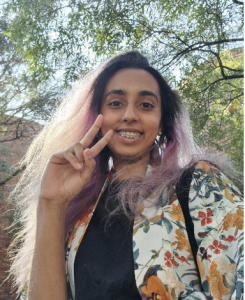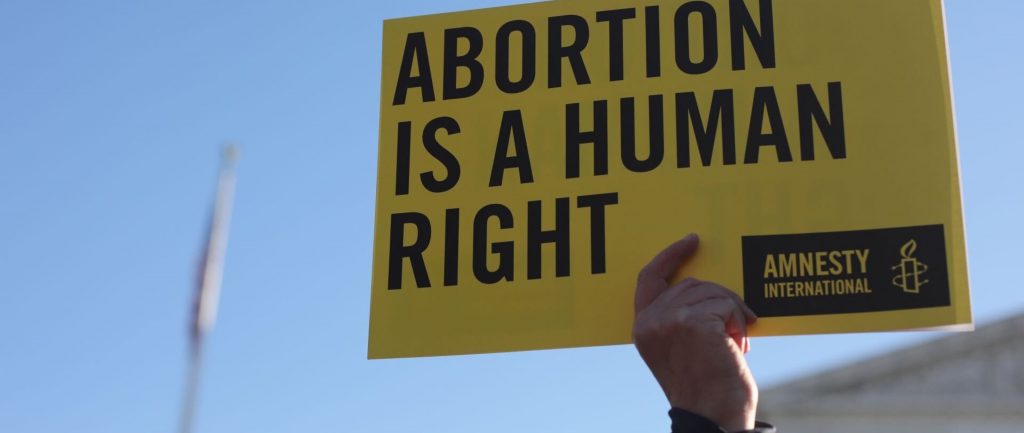By now, we have perhaps heard the names Roe and Wade too many times to care about their significance. But let us revisit the horrific matter: the constitutional right to abortion has now been revoked in the United States. If you’re wondering what this has to do with South Africa, you have come to the right place.
Abortion is a highly debated topic. For some, it seems incomprehensible that abortion is a human right to be protected. And yet it is so: the right to choose the fate of a foetus that will change your body and life forever is a fundamental right. A pregnant person who cannot safely abort a pregnancy is more likely to opt for unsafe alternatives, which are often unsuccessful and can end in the death of the pregnant person; if the attempt is unsuccessful and the bearer is alive, there may be unbearable mental and financial consequences for the bearer. It is therefore vital that abortion remains a legal right.
Arguing that victims of incest and sexual violence should be given ‘special privilege’ is also dehumanising, as it implies that one should have one’s rights violated before being given autonomy over one’s body. It is also important to note that those advocating for abortion largely acknowledge that pregnancies should be terminated within a specific period if it is for personal reasons, as South Africa’s Choice on Termination of Pregnancy Act 92 of 1996 stipulates.
The absence of this right is nothing short of the dehumanisation of pregnant people, and the US Supreme Court’s decision to revoke this right should scare the world. If the US can easily revoke human rights with no international consequences, what does it mean for the future of human rights?
For me, it would also be ignorant to ignore the impact of religion on the Supreme Court’s decision, which forces me to believe that there needs to be a separation of religion and the state if human rights are to be protected. Now that the US Supreme Court has opened the door for individual states to ban or severely restrict women to get abortions, a person practicing Christianity will be able to practise their religion by simply opting to not have an abortion regardless of the position of the law, while a person who practices, for say Judaism, which mandates that a foetus whose existence threatens the bearer’s life be aborted, cannot practise their religion if abortion is illegal or severely restricted. If only one religious demographic is awarded freedom whilst others are marginalised, other forms of discrimination will start to prevail.
The autonomy of women cannot be questioned. The aversion to abortion arguably remains an effect of misogyny, although it is vital to recognise that any person of any gender that can become pregnant should be included in the abortion discussion. Forced pregnancies serve to restrict women’s sexual and bodily freedom, and stem from the notion that women should not be awarded the same status and rights as men.
I would go as far as to argue that an unborn foetus is given more importance than the life of a pregnant person, which is an unacceptable flaw in humanity. Furthermore, it is unquestionable that anti-abortion laws will affect people of colour more than white people, as racial inequality in the US makes healthcare services more inaccessible for women of colour; the same remains true for impoverished communities. It is also important to recognise that in addition to women, fathers who have had parenthood forced upon them are also negatively affected, as they will now need to fill a role that they did not want and often do not fulfil. The unwanted child itself could then either be placed into the dismal foster care system or have parents who were forced to be parents. All of society remains affected by the absence of abortion, including the very child that anti-abortion activists supposedly advocate for.
Now that we understand that abortion should be a global human right, what is the first step towards achieving such a reality? It is simple: we must first view all women as humans and equal to men. If we recognise the humanity and significance of all genders, we will not question whether one group should possess autonomy over their own bodies. With 55 countries presently legalising abortion without conditions, our ideal reality is not unachievable. In a time where the world seems to both progress and regress equally, it is vital to remember what we can and should take small steps each day towards the society that the likes of feminists Mary Wollstencroft and Virginia Woolf imagined.
In addition to changing our perception, we must comprehend the power of our political votes. South Africa would be a very different nation indeed if our constitution did not protect people of all genders, races, sexual orientations, and religions. We must also understand that policymakers and law enforcement officials are equally important, and that enforcing the correct laws matters as much as making the correct laws. But before you expect politicians to change, ensure that your own views promote human rights. When you vote with the intent of ensuring that even those that are different from you live freely, you can and will change society.
To take a stand against the overturning of Roe v Wade, sign this petition. To learn more about the long struggle to instating abortion, read here and here.
Your voice matters. Every voice matters.
About the author:

Shruthya Sivakumar is currently studying law at the University of the Witwatersrand. When she isn’t advocating for human rights, Shruthya is likely listening to Louis Tomlinson and cuddling with her cats.
**This article was contributed by a guest blogger. This blog entry does not necessarily represent the position or opinion of Amnesty International South Africa.


